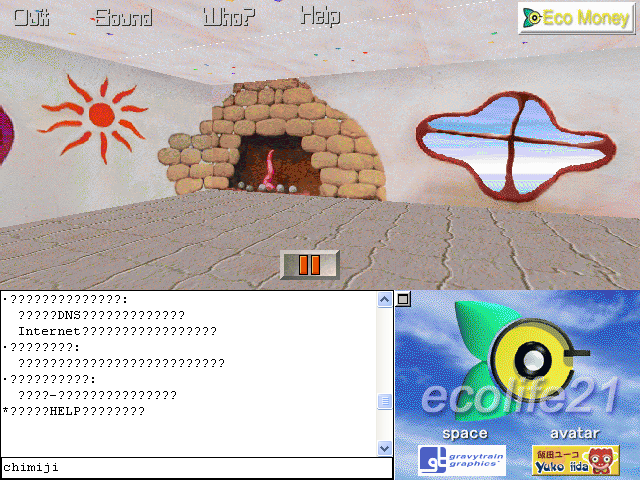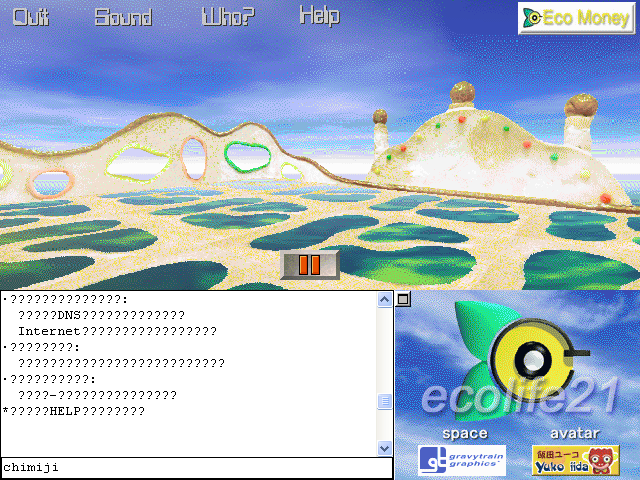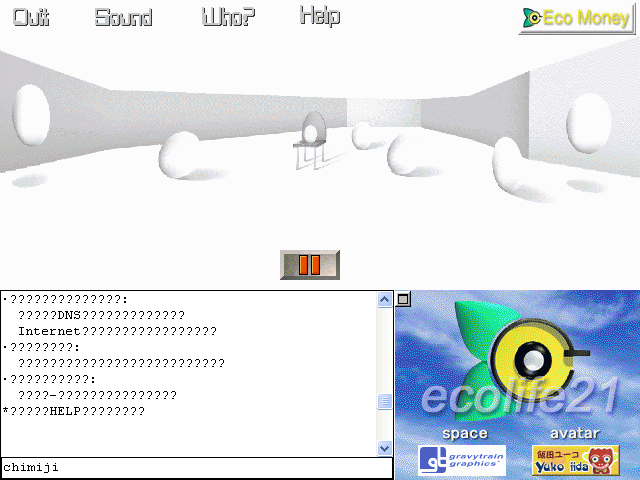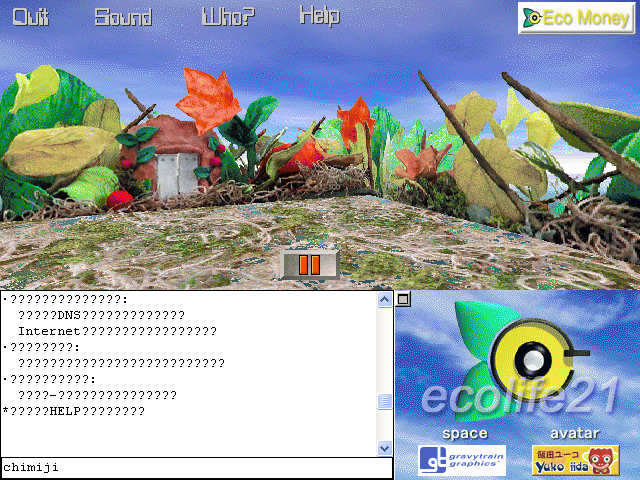
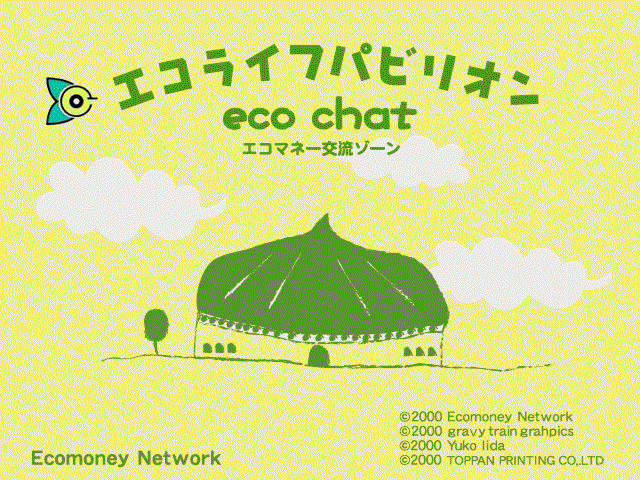
"IMGLIB\551\Music.mid", converted to MP3
Credited to (c) 1998 Cubic Energy Inc. all rights reserved.
"We want to change everyone's values from "possession" to "application" and change everyone's lifestyle to "Ecolife", which means to be abundant in information and service and be frugal of resources and energy. In order to achieve this goal, we set up a 3D space on internet to improve the innovation with good will and start the innovation which enable us to face the coming of the 21st century."
Ecolife Pavilion (AKA Eco Chat, or Ecolife) was a chat client from late 2000 aimed at members of communities engaging in "Eco-money" activities in Japan. The Eco-Money Network that operated this chat program was established circa 1999 with the goal of introducing new local currencies that would encourage community and environmental conservation activities.
The Ecolife Pavilion also acted as one of the exhibits of the "Internet World Expo" (referred to on the Ecolife website as "INPAK"), sponsored by the Japanese government in order to commemorate the coming of the new millennium.
The intent of Eco-money was for it to be used to let residents exchange acts of goodwill with fellow members of their community. Residents could register an Eco-currency for their community, giving it a suitable name and specifying what manner of services they wanted it to be used for. This could all then be tracked online, where residents could also put out requests for favors to one another.
Eco-money was entirely non-profit, and had no interest rates, and there were no benefits for hoarding your Eco-cash. The only value that Eco-money carries is determined by the members of these communities, essentially acting as a tangible expression of gratitude.
Ideally, this would encourage and incentivize people to perform more tasks in the areas of community welfare, nursing, and recycling efforts.
Many similar currencies exist across the world, such as the Local Exchange Trading System (LETS) currency or the Time Dollar, sharing the goal of rewarding and incentivizing services of goodwill.
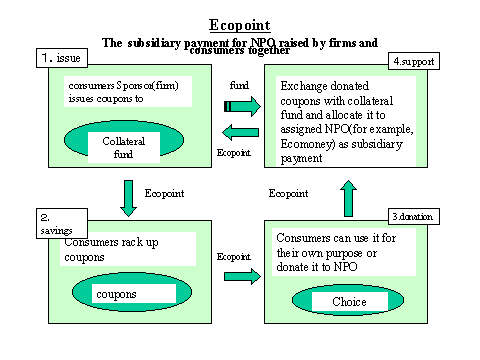
Discussion of the effectiveness of these currencies is beyond the scope of this article, of course... But maybe we can talk about it on Eco Chat again some day?
As use of Eco-money inherently necessitated some understanding of the Internet, the goal of the Eco Chat client was to exchange information regarding Eco-money and its utility to the public, particularly to the Elderly. It was also meant to generally bridge the gaps between (for example) those living in dense, urban areas and those living in more remote, mountainous regions.
Naturally, while users were free to chat about whatever they wanted, they were encouraged to keep discussion to topics relating to Eco-money and the Eco Life Pavilion, and to take lively conversations about other topics to more relevant forums of discussion.
Unfortunately, Eco Chat did not attract an incredibly active userbase. Based on messages left on the official guestbook (or "mini bbs"), several users reported being the only person online as early as May 10th, 2001.
Archives of the Eco Chat website only exist through the year 2001.
